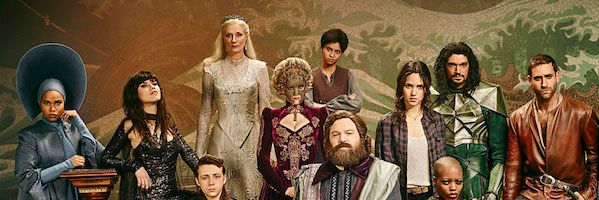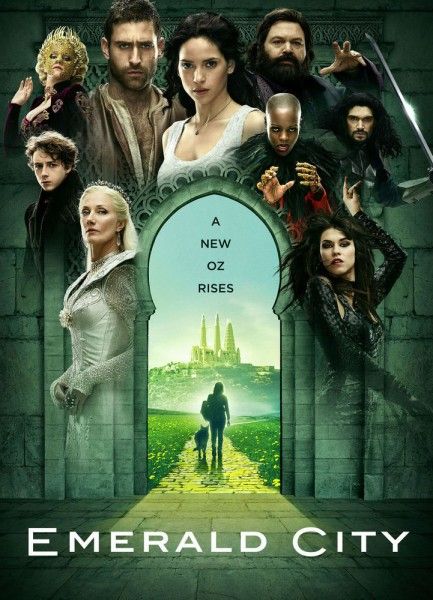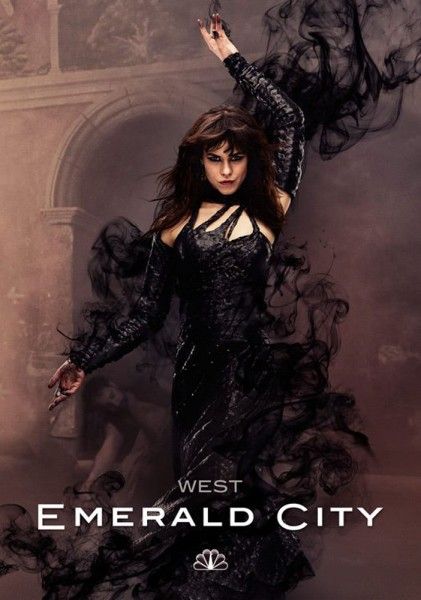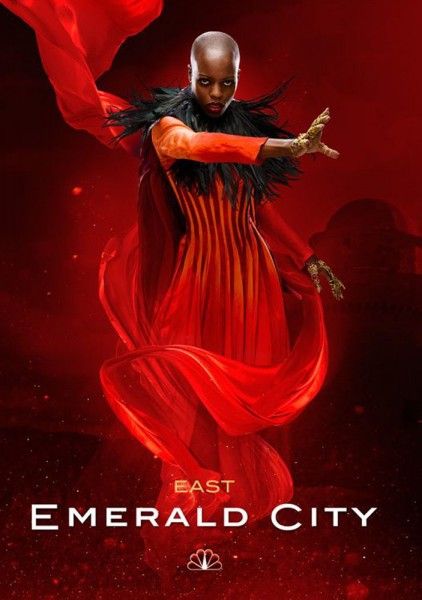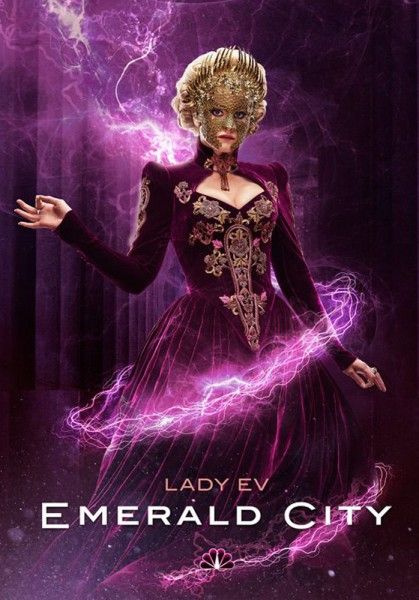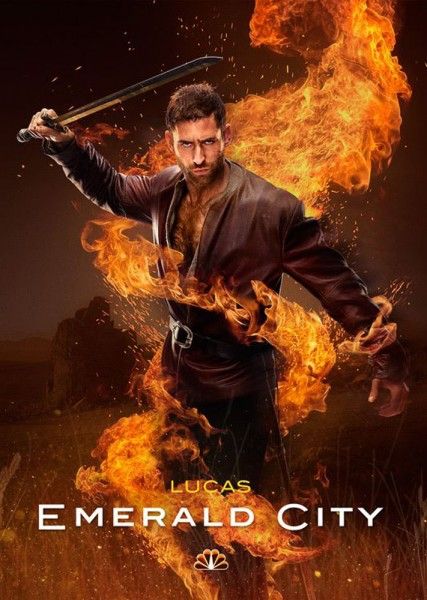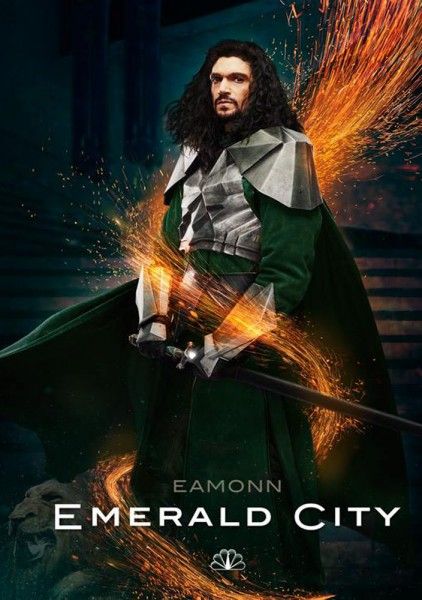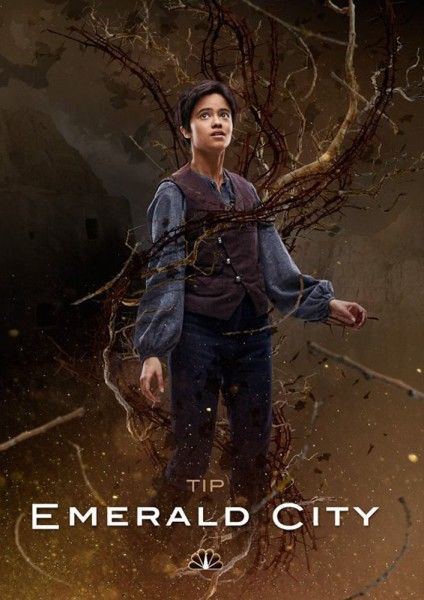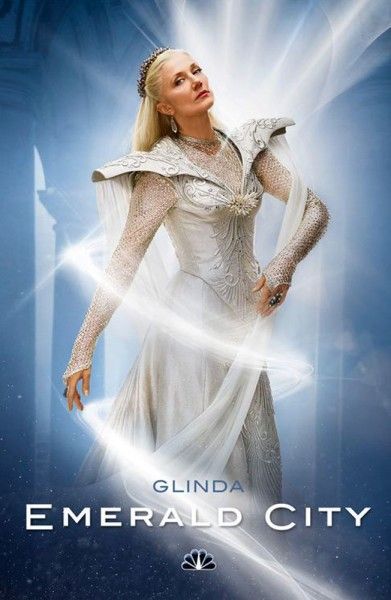The NBC series Emerald City, directed by filmmaker Tarsem Singh, tells the story of 20-year-old Dorothy Gale (Adria Arjona), who gets swept up into the eye of a tornado and transported to a mystical land where an all-powerful ruler, known as The Wizard (Vincent D’Onofrio), has outlawed magic. While in Oz, Dorothy finds herself on a path that is empowering, epic, romantic and fantastical, as she tries to figure out this unfamiliar world with witches, a lion, a tin man and a scarecrow.
During this exclusive phone interview with Collider, director Tarsem Singh, who's known for his stunning visuals, talked about why this is probably the easiest thing he’s ever done, what made him insist on directing all 10 episodes, not having the same personal connection to The Wizard of Oz that so many other people have, how he decided which references to make to the original movie, having such a diverse and unique cast to work with, and why he hasn’t made more films in his career.
Collider: After directing the whole first season, if there is a Season 2, would you want to do that again, or would you hand it off to another director?
TARSEM SINGH: It’s probably the easiest thing I’ve ever done. There are very, very few things where the visuals are actually in the writing. They did such a brilliant job in writing it. The problem was that I wouldn’t go to the negotiating table, unless I was going to do all 10. Until then, I just wouldn’t engage. It’s like dressing your wife in beautiful clothes to go out, and then somebody else sleeps with her. I wasn’t going to do the pilot, and then have somebody else come and do the rest. It’s a visual piece. When I look at TV stuff, it looks like they’ve put all of their money in the first episode and maybe the last episode, just to get people to watch, and then people are talking in corridors. My thing was that this has to keep getting bigger, stranger and more wonderful in scale, as well as having an intimacy. If you’re going to go with different directors, it’s a problem. I just said, “This is the only way I think this can happen,” and they took the risk. I absolutely loved it! I think we’ll come to know [about Season 2] quite quickly. Probably in the first or second week of January, we’ll know. And if they’ll do it exactly the same way, with everything written first, then I would love to take it on because the whole experience was phenomenal.
Had you been looking for a TV project, where you could take on a number of hours of storytelling?
SINGH: It wasn’t particularly TV. People keep telling me the money is in just doing the pilot, but I have absolutely no interest. I’ve worked for the last 20 years in advertising. I have more money than is possibly good for me. All my nieces and nephews have done college, so we don’t really need any finances. It can’t be about the finances. I only wanted to do it, if I could do the complete season, and I was told that it just wasn’t going to happen and that no one would give me 10 episodes to do. For 7 or 8 years, they’ve been trying to get me into a meeting, and I’ve just said that I wasn’t interested. It’s changing a little bit now because the networks are trying to compete with the big boys. Otherwise, the scale of what they end up doing looks too tiny. You either need $400 million to do these projects the way that I want them, or your pilot will cost 98% of the budget. So, they decided to take a risk, and this was the project that it happened with. All of the episodes needed to be written before we shot them, which is not the way that a network works, at all. With the schedule they have, they’ll write one episode, and then, if they don’t like a character, they’ll write them out. And then, they’ll write another episode. They tried to say that it didn’t make sense to write them all first, but in this particular case, it’s more like a revolution than an evolution. It’s just the way it had to be done.
This was a show that was going to get made, and then it wasn’t going to get made, and now, here we are.
SINGH: That’s exactly right, and nobody will tell me if they had directors or not. Truly, there was no amount of money that would have made this possible, if they were just going to have me make the pilot. It would have been 85% of the cost, with the kind of sets we were talking about. It had to be for everything. But, I don’t know who was involved before.
You brought a reimagined version of a fairytale to life with Mirror Mirror, and here you are doing that again with Emerald City. Is it more daunting to re-tell a classic story within the confines of a movie, or to fill up 10 hours of story for a full season?
SINGH: For me, the thing of it is that, if I was aware of what this means to most people, it might have been daunting. You either try to find a different take, or you bring somebody in like me, where the ingredients are different and my background is different. The reason it’s going to taste different is because you’ve got an Indian guy telling a quintessentially white tale to a Western audience. It just will be different, by definition, even if I was trying to conform, and I wasn’t trying to conform. I hadn’t seen The Wizard of Oz until three years ago. The reason I saw it was because everybody kept telling me that The Fall was like that. I had seen bits of it and knew what it was about, but when I saw it, I thought it was the biggest stage movie you could make. What I wanted to do was the complete opposite and have it be completely grounded, like a real place, and that’s what they were looking for. It’s quintessentially a Western tale that everyone is familiar with, but I wasn’t, so there wasn’t any intimidation. Now, when I see people going, “I hope he doesn’t corrupt the movie,” I realize that people hold it as sacred. If I knew that, I might have been worried, but I didn’t know that, at all.
How did you approach deciding which direct references you wanted to make and which you wanted to have your own take on?
SINGH: That’s a very good question. You never know what is too much and what is too little, so what we did was pepper things around to see how it went. Most people will see a few of the Easter eggs, but then they’ll see a few more, if they see it a second or third time. There are small things that some people will see and some won’t. After a couple weeks of shooting, they left me alone to do what I wanted with that, and then we could decide what to do with it later. If something was too much, we could cut it shorter. Some things were too subtle. Everybody talked about the ruby slippers, which we didn’t do, but in the book, they were actually silver. For me, when I looked at this, I decided that when Dorothy comes in, she steps into blood, so her boots are red. But when we shot it, it turned into an evening scene, and now you can’t see the red on the shoes.
This telling of the story has a very different Dorothy than we’re used to. Do you think those changes were necessary, for her to exist and be of interest to audiences today?
SINGH: Yes, of course! People are so short-sighted with a pilot, in terms of needing to get the attention of people. It’s like the opening weekend for movies, where if you don’t get the numbers on the opening weekend, you’re dead. With a TV show, it’s about how many people see it and go for it in the first week, so they through in every arc and turn they can think of, which is a pity. When you look at Game of Thrones, you know you’ve got 10 episodes and that you have a captive audience, so they will do things like get incredible people and kill them, and they’ll build to Episode 8. That’s how literature does it with chapters. But here, everything has to be in the first episode, which tends to become a little broad for me. It doesn’t arc like a movie or how cable does it. It must arc much quicker. I want to let it build for 10 episodes, but that isn’t the nature of network stuff. Every 10 minutes, you have a commercial and you have to embrace it because that’s how it goes. So, when I took this on, I embraced it because I love this gang.
When he found out that you were directing all of these episodes, Vincent D’Onofrio wanted to play The Wizard before even reading a script. What do you feel it is that he brought to the role?
SINGH: He was it. There is nobody that can do a range the way that D’Onofrio does. There is nobody that can do opera and pathetic, at the same time. He can be grandiose, but at the same time, be absolutely pathetic. The Wizard is a con man, and there’s nobody who can play that like Vincent. We hadn’t worked together in 16 years. We’d only talked to each other occasionally, through the internet on email. We just thought that we needed to work together, and when this came along, it was just the perfect thing. I think there was some hesitation earlier, but for me, he was the right person. We almost lost him for scheduling. That was the only scary thing that happened to me, on this film. Once his schedule was set, then only I could screw it up.
You have such a diverse set of actors in this, not just in how they look, but in their professional backgrounds, as well.
SINGH: That was shocking to me. I wish I could take more credit for that, but no. That had to do with the showrunner. They were incredible. I would be shooting Episodes 10 and 2, or Episodes 5 and 3. We were all over the place, so who we had was who we had. Somehow everyday player, week player, and everyone that came in was great. I’m just shocked at how well prepared they were. The TV world is so strange. I’m used to Mickey Rourke showing up and saying, “I can’t do more that two lines.” These people had 25 pages, and they would just come in and know it so well. I was just shocked at how fast we could move. That credit really goes to the showrunner. I only fought for two people, and that was it. Everybody else that came in, they just took care of me. I was never left with my back exposed.
Who were the people that you fought for?
SINGH: It wasn’t fought for, but I just said, “This is the person,” and that was D’Onofrio and Tip. They were the only two where I pushed and said, “I need to go with these people.” Everybody else that came in was perfect. So, it wasn’t particularly a fight. They were just the two people that I pushed for. Everybody else they gave me, I just said, “Yes!” I didn’t have to change anything. It was perfect.
As visually stunning as this is, the character dynamics are fascinating to watch.
SINGH: I wish I could take credit for that, but I swear to you, that was on paper. They did so good. If it’s written I paper, I can make the visuals speak that language. It’s just that usually when it comes to the visual thing, I’m used to people going, “This is crap, but he’s a visual guy, so he can fix it.” Here, the stuff existed, so we could literally take the wardrobe and actors and really make it work. It was on the paper. They did a phenomenal job. Before we did a read-through, all 10 episodes existed, and they were really open to what I wanted to do.
You’ve only really made a handful of films, in your career. Has that been an intentional decision, on your part?
SINGH: No. The thing is that most people think, in those times in between, I’m not working and that I go for seven or eight years without doing something. I shoot more than 300 days a year, I’m just always doing commercials. I love being on a set, but the stuff with movies moves too slow for me. People think that 10 hours is intimidating, but it’s much less than I’m used to shooting. I love being on a set. The moment this happened, I fell in love with the idea of doing a 10-hour piece. I would like to do it much more, if I can, because it just was the right pace for me. It literally turned into banker’s hours. The whole thing was so organized for me. It was such a great crew, and everything was there on paper. It takes time to set the visual stuff up, but when we did it, nothing was wasted. In that sense, it was quite a perfect marriage.
Emerald City airs on Friday nights on NBC, starting on January 6th.

